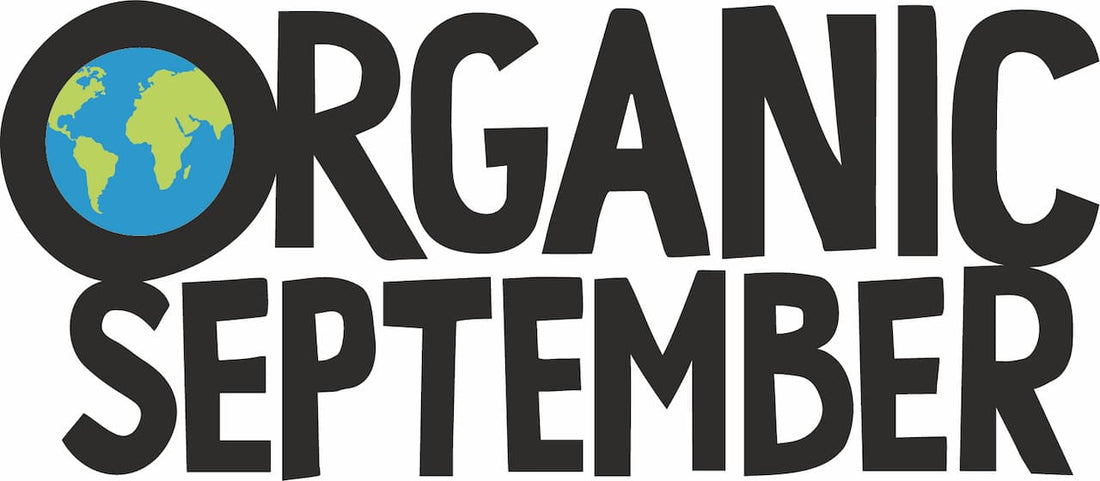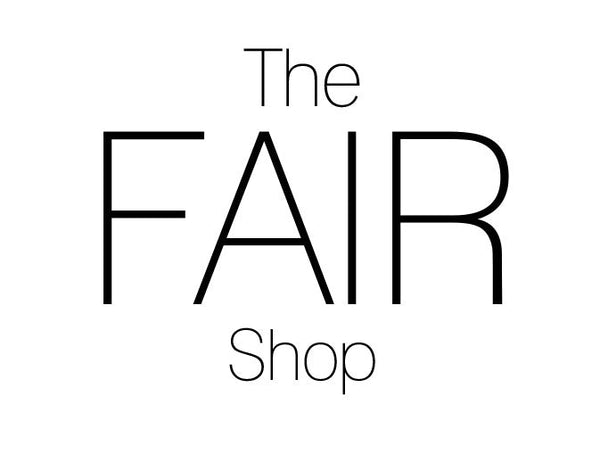
Organic September & the Vital Importance of Organic Products
Siobhan WilsonShare

Organic September is a campaign first established by the Soil Association which helps promote actions and discussions around consuming organic products and produce. The idea behind organic materials is that it is an overwhelmingly better alternative to non-organic industries and produce. It is not only better for combating the effects of climate change on our environment but it is also a cleaner, safer and healthier way of living.

Cotton is one of the most mass produced crops in the world, with over 100 million households working on its production world wide. It is a great natural fibre that humans have been using to make textiles and clothing for since the 5th millennium and continues to be one of the most important crops for the fashion industry. However, with its mass production in the modern era is has become the 'dirtiest crop' on Earth. This is due to the large amount of water that is required to grow the crop successfully but also the vast amounts of pesticides, artificial fertilisers and genetic modifications that most farmers continue to use for its farming. However, cotton no longer needs to be the world's 'dirtiest crop' because organic cotton is the complete opposite of everything non-organic traditional cotton is.
Organic cotton is of vital importance to protecting the future of our environment as it works to protect bio-diversity, store carbon in the soil and also provides a much safer environment for workers. Simply put, organic cotton is a far greater way to produce materials than the traditional standard forms used to grow non-organic cotton. While it is easier and cheaper to produce non-organic cotton its disadvantages vastly outweighs its benefits as it destroys biodiversity, exacerbates climate change and doesn't compensate it's farmers properly. Cotton is going to continue to be one of the most popular natural fibres in the world so we need to learn how to innovate its farming and production methods if we are to maintain a sustainable industry that maintains prosperous to us and future generations.

41% of Britain's wildlife species have declined since 1970, and more than one in ten are currently facing extinction. Insects are being lost eight times quicker than mammals or reptiles and the destruction of natural habitats due to intensive farming is a primary culprit. Organic farming creates healthy soils, which act like a sponge, soaking up water during floods and holding it for longer in times of drought. Hazardous synthetic pesticides and fertilisers are banned in organic farming, so rivers, lakes and drinking water are directly cleaner. To maintain a balanced system on their farms, organic farmers always grow other crops alongside their cotton, which helps to keep soils healthy, encourage wildlife and protect topsoil. For cotton farmers, these crops can provide farming families and their communities with a more stable, accessible, abundant, and diverse food supply and another source of income. Organic farmers use natural methods like crop rotation to control pests and diseases which eliminates the need for toxic chemical pesticides. Hazardous synthetic pesticides used in non-organic farming can damage ecosystems, poison waterways, and endanger workers who can’t always afford safety equipment needed to protect them. Conventional cotton alone is responsible for 16% of all insecticides sold worldwide. Organic farming helps to foster biodiversity thus protecting sensitive habitats that our ecosystem relies on to function.

One brand that is a champion of organic cotton is People Tree, and they always strive for complete transparency about their suppliers, factories, materials and wages. People Tree takes pride in using GOTS certified or Fairtrade organic cotton. It's hypoallergenic properties is great for the human skin especially those with sensitive skin. It is also very simply a better-quality fibre than standard cotton that most fast fashion companies use. It also avoids potentially toxic pesticides, preventing the associated health problems and deaths common in non-organic cotton production. The FAIR Shop stocks a great collection of beautifully soft, comfortable and organic People Tree range.

Brighton based, organic leisurewear brand Unoa also takes extreme pride in their use of GOTS certified organic cotton. It is the original foundation of the company, with its aim to create a full range of purely organic leisurewear. Unoa’s founder Aamena is of Pakistani origin and sourced her organic cotton from a close relationship she has with a textile factory in Pakistan, keeping in touch with her roots and supporting her community in Pakistan as well as in Brighton. Cotton is the prime crop of Pakistan, and it is the 4th largest cotton producer in the world. The textile industry in Pakistan employs 38% of the manufacturing labour force and Unoa are determined to support and innovate a more socially and environmentally responsible industry in the country, the mainstay of Pakistan's economy and a major global contributor. Unoa Organic Cotton is ethically sourced from non-genetically modified plants and is grown without the use of harmful synthetic chemical pesticides or fertilisers. This eliminates the risk of soil and groundwater contamination, preserves biodiversity, eradicates the use of residual chemicals present in non-organic cotton that irritates skin and soil. Organic cotton also stores over 1.5 tonnes of CO2 per acre each year which one of the main reason it trumps any benefits of non-organic cotton. Their cotton is sourced from GOTS and OEKO-TEX certified suppliers thus ensuring the standard of harvesting raw materials remains sustainable, fair and safe.
Organic September for us is about helping people understand the benefits of organic produce and production methods. Standard cotton is no longer a viable option if we want to have a future for our planet. The damage of chemicals, mass waste of water and over-farmed soil is already too great for it to be a viable option for our future. Local and global industries need to adapt and change for the better if we are to maintain a healthy relationship with our materials and planet. So, this September why not try living a little bit more organic in the kitchen and in your closet?
Written by Cormac Ganon & Vitória de Souza
